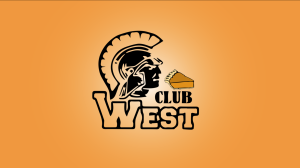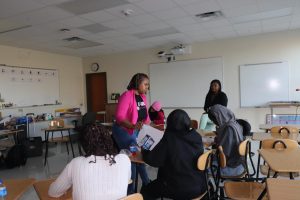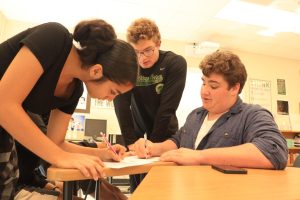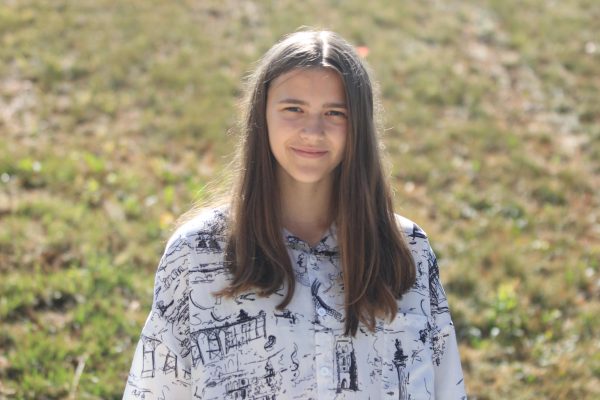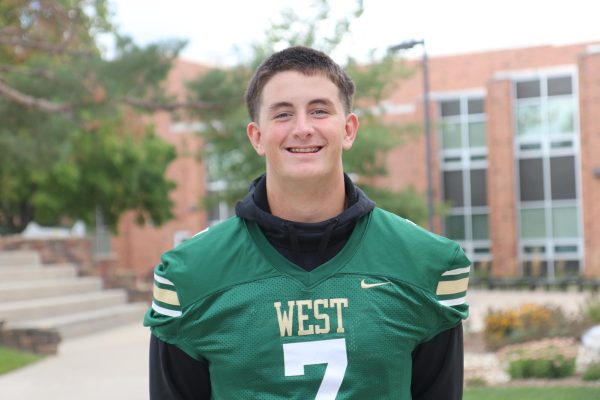PALs: Peer assistance and new leadership
While Peer Assistance and Leadership Service, or PALs, is not new to West High, there is new leadership for this overlooked course.
November 23, 2022
Social studies teacher Anson Kritsch is now the current lead teacher for PALs, which was originally a class under English teacher Kerri Barnhouse. PALs is a course that focuses on mentoring and assistance utilizing outside resources, such as feeder schools, to help younger students. Learn more about PALs from this Q and A with Kritsch.
Q: What would you say the PALs class is in a broad term?
A: This class trains students on how to be good mentors to other students, that really is what we covered in the first three quarters of trimester one and now the class is really targeting that mentorship around the West High area. Not just here at West High but to all of our feeder schools today.
Q: How would you say a normal class day goes in PALs?
A: Well right now during the training, in the first part of the trimester, we really practice on skills like how do I hear the things that somebody needs and then find out the best way to provide those things to them. Now, a typical day since we’ve kind of gotten through our training is like, for instance, today, we’re gonna go to Weber and our pals will get split into two groups. We’ll go into separate lunch groups and I’ll meet with students and talk with them and learn about their days. On Tuesdays and Wednesdays we go to Borlaug and students ‘ pals are paired up with either an individual student or a class. And they do mentoring programs with students, either on a one on one basis, or if they’re in a whole classroom they provide mentoring to small groups or individual students who maybe need it on that particular day. On the days that we aren’t doing outreach right now, we’re either writing reflections about it or we’re sending out follow up emails to teachers with concerns or questions that we may have. So it’s on the days that we’re still back here at West, which right now are Mondays and Thursdays. It’s mostly, hey, let’s come back together. How did it go? Are there some things that we need to reach out to people about or do we need to tweak some of the things that we’re doing in these places? Is there anything that I can provide help for? Is there anything that other people in the room could provide help for? So we’ve tried to mentor each other right on those days as well.
Q: Did you choose to teach PALs or was it kind of assigned to you?
A: It was on a platter of courses for me to pick from. They asked if I’d be willing to teach it and I said, yeah, I’ll take PALs.
Q: Why did you choose this class?
A: It sounded the most fun to me out of all the other options that I had. I liked the idea of doing a mentorship program. My wife is also an elementary teacher, and I kind of immediately made a connection that like, oh, maybe we can do some work between the high school and the elementary schools. So I was looking forward to that.
Q: How would you say this class helps towards other professions? Or what kind of people get attracted to this class?
A: I think we focus a lot on your ability to do a particular “hard skills” like writing an essay or welding. But really, what makes you an employable person is your ability to work well with others, to communicate, to have genuine conversations with people. Those are those soft skills that are really gonna leverage you in the workplace. And learning how to be a good mentor is like really learning how to be a good employee and how you can help others. So we work with a bunch of different people all over the building and we get to know maybe more people and more parts of West High then you’re familiar with. This creates those connections and makes coming to school useful or meaningful every day. For students who take PALS, it’s a combination of those two things. They’re working on skills that are going to be sort of invaluable, unquantifiable, and they’re also getting more connected to West High.
Q: Do you just work with students, like schools that are younger grades?
A: Right now that’s been our focus, and that’s largely because of the number I mean, we have 16 in our class students total. To have the greatest impact right, we kind of talked about what are some of the options that are on the table. We talked about where are the places that we would like to provide our mentorship. Our first rounds of practicing mentorship were here at West High, identifying places and student organizations here that maybe could benefit from some of our help. Then we also talked about feeder schools. As these are students that are gonna eventually come to West High. We talked about whether or not we felt like we had an impact there. We came up with the idea that since we’re a small but mighty crew, we might have greater impacts in the elementary schools where we can provide either one-on-one mentorship or whole class mentorship in some cases. The idea is that hopefully we will have lasting impacts on those kids’ lives and their education, and that’ll move them in a positive direction before they end up at Northwest Junior High and eventually here at West high. But you know, had the PALs decided that West High was where we wanted to do our mentoring and we would have done our mentoring here at West High, and we would have found the best way to maximize our impact here.
Q: Do the students lead themselves in mentorship and this class?
A: Every individual student in PALs provides mentorship differently. But we all actually kind of like, help each other. Like today at Weber, we’ll be kind of together providing mentorship so while everybody’s experience with PALs is slightly different, we’re all sort of together through it all.
PALs is a year-long class held during the fourth period. Juniors and seniors are available to take this class with no prior prerequisites. The class is offered at West and Liberty High, students are trained in community service, conflict resolution, and as peer helpers of any school level.



